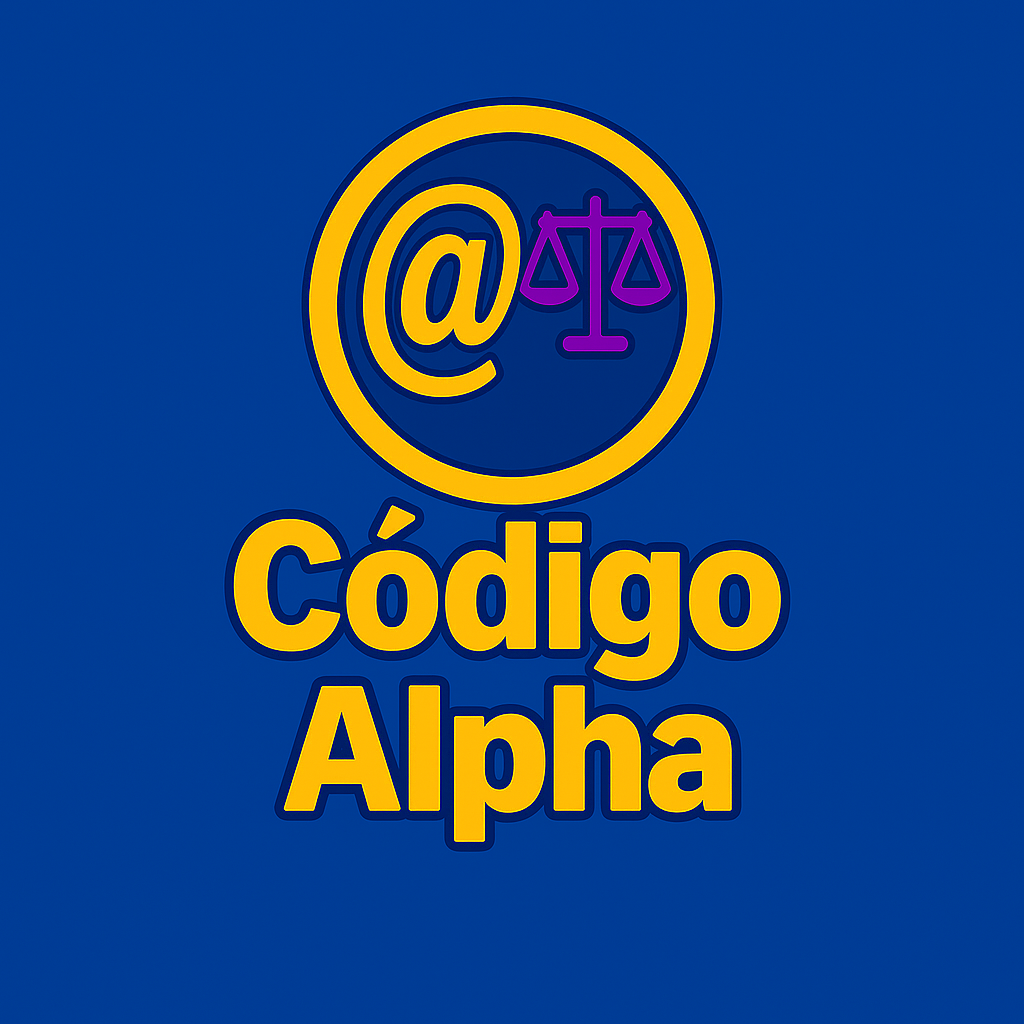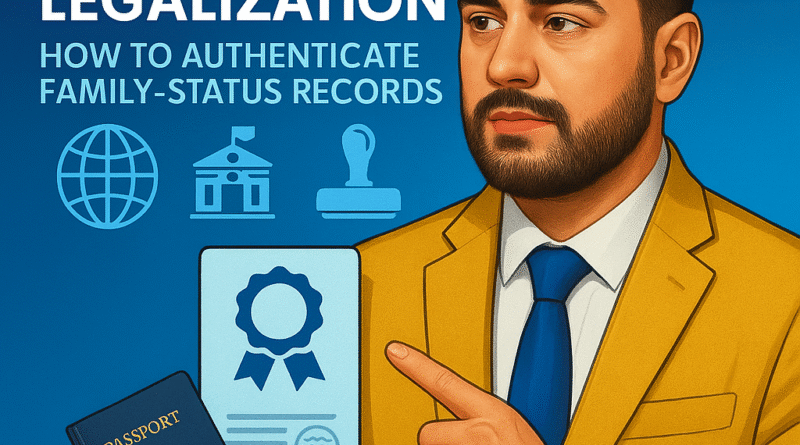Apostille vs. Consular Legalization: How to Authenticate Family-Status Records
Scope and context
Family-status documents—such as birth, marriage, death certificates, divorce judgments, adoption decrees, and name-change orders—regularly cross borders for immigration, marriage, probate, benefits, and school enrollment. To be accepted abroad, these documents must be authenticated either by a Hague Apostille or by consular legalization. This guide explains the differences, when each method applies, how to build a compliant packet (including translations), timelines and costs, and common pitfalls—so your records are accepted the first time.
Quick Guide (English)
- If both countries are members of the Hague Apostille Convention (1961) → get an apostille from the issuing country’s competent authority. No consular stamps are required by the receiving member state.
- If either country is not a member (or the document type is excluded) → use consular legalization (multi-step authentication ending with the destination country’s embassy/consulate).
- Translation: provide a certified/sworn translation into the receiving authority’s language. Translate the apostille/legalization pages too.
- Recent copies: many authorities want recently issued certified copies (e.g., 60–180 days). Order fresh copies if unsure.
- Chain integrity: the apostille/legalization must be issued by the jurisdiction that issued/commissioned the underlying document (state vs. federal).
Apostille vs. consular legalization—what they are
Apostille (Hague Convention of 5 October 1961)
An apostille is a standardized single-step certificate placed by the issuing country’s competent authority (e.g., a state Secretary of State for state-level U.S. documents or a national Ministry for civil-law jurisdictions). It certifies the origin of a public document (the signature/seal/capacity of the official) so it will be accepted in another Hague member state without further legalization. Many authorities now include a QR code/e-register for verification.
- Covers: vital records, court documents, notarized documents, administrative certificates.
- Excludes (under the Convention): documents executed by diplomatic/consular agents; administrative documents dealing directly with commercial or customs operations.
- Effect: replaces consular stamps between member countries.
Consular legalization (for non-Hague routes)
Legalization is a multi-step chain that typically authenticates signatures and seals through domestic authorities and ends at the embassy/consulate of the destination country. The exact chain varies by jurisdiction; a common U.S. example is: notarization (if applicable) → county authentication (if required) → state authentication → U.S. Department of State authentication (for federal or some state streams) → destination embassy/consulate legalization. Some destinations add a final Ministry of Foreign Affairs step after arrival.
Comparison table (family-status documents)
| Feature | Apostille | Consular Legalization |
|---|---|---|
| When used | Both origin and destination are Hague members | If either country is not a member or document type excluded |
| Steps | Single certificate by competent authority | Multiple domestic authentications + destination consulate stamp |
| Speed | Often faster (days to a couple of weeks) | Longer (weeks), depends on embassy queues |
| Cost | Low–moderate government fees | Higher; multiple fees + courier costs |
| Verification | e-Register/QR in many countries | Consular stamp/label; verification varies |
| Use case | Routine cross-border use among members | Required by non-Hague destinations; special cases |
Decision flow (what do I need?)
| Question | If YES | If NO |
|---|---|---|
| Are both countries Hague members? | Use apostille | Proceed with consular legalization |
| Is the document excluded by the Convention? | Use legalization route | Apostille applies |
| Will the authority accept digital/e-apostille? | Provide e-apostille + print with QR | Request a paper apostille or follow consular path |
| Is a translation required? | Use a certified/sworn translator; include apostille/legalization pages | Keep originals in the language requested |
Building a compliant packet (family-status focus)
- Order fresh certified copies of the underlying civil-status record from the issuing registry (long-form if available). For divorce/adoption, obtain a final court-stamped judgment.
- Confirm the route by checking whether both countries are Hague members and whether your document type is covered. When in doubt, ask the receiving authority for written confirmation.
- Authenticate:
- Hague route: request an apostille from the competent authority (state/national). Ensure the apostille references the exact official who signed/sealed the record.
- Consular route: follow the chain required by the destination (domestic authentications → destination consulate stamp; some countries add a Ministry of Foreign Affairs step in-country).
- Translate into the required language with a certified or sworn translator. Translate seals, stamps, and the apostille/legalization itself.
- Bundle and label: keep originals with apostille/legalization attached; provide a clean copy set and the translator’s certification. Preserve receipted timelines to prove freshness.
“Graphic” info — time, cost, and risk snapshot
| Route | Typical timeline | Gov’t fees | Common bottleneck | Rejection risk |
|---|---|---|---|---|
| Apostille | 2–15 business days | Low–moderate | Wrong issuing office; outdated certified copy | Low (if both members and translation included) |
| Consular legalization | 2–8+ weeks | Higher (multi-agency + consulate) | Embassy booking delays; courier returns | Medium (missing link in the chain; local rule changes) |
U.S. specifics (as origin or destination)
- Origin in the U.S.
- State documents (vital records, state court judgments, notarial acts): apostille or authentication by the issuing state’s Secretary of State. Some states require county certification first for older records.
- Federal documents (e.g., federal court, FBI): authentication/apostille by the U.S. Department of State.
- Destination in the U.S.
- State and local authorities accept apostilled foreign public documents from Hague members without further consular stamps.
- For non-Hague documents, U.S. authorities expect consular legalization from the foreign origin plus certified English translation.
Special notes for family-status records
- Long-form vs short-form: Some agencies demand long-form birth or marriage certificates showing parents’ names and annotations (adoptions, divorces). Order the long-form to avoid re-issuance.
- Finality: A divorce or adoption decree must be final and stamped/entered; interlocutory or provisional orders are often rejected.
- Multiple jurisdictions: If an event occurred in one state/country but the record was re-issued elsewhere, apostille/legalize the re-issuing authority’s signature.
- Name mismatches: Add change-of-name orders; explain transliteration differences in a translator’s note.
Common pitfalls and fixes
- Wrong competent authority: The apostille must come from the same jurisdiction that issued or commissioned the document (e.g., the state of the registrar or notary).
- Untranslated attachments: The receiving office reviews all pages; translate stamps, seals, ribbons, and back-side annotations.
- Expired “freshness” windows: Order new certified copies; ask the authority for its allowable window (often 60–180 days).
- Detached pages: Do not remove staples, ribbons, or eyelets. Many authorities reject packets that appear altered.
- Digital vs paper mismatch: If the receiving office does not accept e-apostilles, request a paper apostille with wet signature/seal.
FAQ (English)
1) Do I need both an apostille and consular legalization?
No. If the destination country is a Hague member, the apostille replaces legalization. If not, follow the consular chain instead.
2) Does an apostille prove the facts (e.g., that I am married)?
No. It only certifies the authenticity of the official signature/seal on the document. The receiving authority still reviews the content under its own law.
3) Can I apostille a photocopy?
Only if the competent authority allows apostilles on certified copies or on a notarial certification of a copy. Otherwise obtain a fresh certified record.
4) My destination requires “legalization,” but both countries are Hague members. Why?
Sometimes websites or forms are outdated. Politely provide the apostille and the Convention explanation; request written confirmation from that office.
5) Are translations apostilled too?
The apostille authenticates a public document or notary’s signature. If your translator swears before a notary, you may apostille the translator’s notarial statement—not the translation text itself—depending on local practice.
6) How long is an apostille valid?
There is no intrinsic expiration, but the underlying document may have freshness requirements. Always check the receiving authority’s window.
7) What if a record lists the wrong spelling of my name?
Fix it at the issuing registry first or supply official proof (name-change order). Transliteration notes can accompany but do not replace legal corrections.
8) Can I use one apostilled birth certificate for multiple agencies?
Yes, but many authorities retain originals. Order multiple certified copies and apostilles if you must submit to multiple offices.
9) Will U.S. immigration accept apostilled foreign civil records?
Yes, if they are official records and properly translated. USCIS typically requires civil registry extracts that are valid where issued; apostille satisfies authentication between Hague members.
10) How do I verify an apostille’s authenticity?
Most competent authorities maintain an online register/QR code. Keep the page or code visible when submitting copies.
Technical-legal basis (plain English)
- Hague Apostille Convention (1961): Abolishes consular legalization for public documents exchanged between member states by replacing it with a single apostille issued by a competent authority. Excludes documents executed by diplomatic/consular agents and certain administrative documents related to commercial or customs operations.
- Competent authority concept: Each member designates the bodies authorized to issue apostilles (e.g., state Secretaries of State in the U.S.; Ministries of Justice/Foreign Affairs or Courts in civil-law systems).
- Consular legalization: For non-member exchanges, the authenticity of signatures/seals is verified stepwise by domestic authorities and the destination’s embassy/consulate. Procedures derive from domestic laws and consular practice, alongside the Vienna Convention on Consular Relations (1963) framework.
- Place-of-celebration/validity principle for family-status: The receiving authority assesses whether a civil-status event is valid where recorded; authentication (apostille/legalization) proves formality, not substance.
- Translations: Requirements stem from procedural rules of the receiving forum; many require certified/sworn translations with translator declarations.
Conclusion
The right route is binary: apostille when both countries are Hague members; consular legalization when they are not (or when a document type is excluded). For family-status records, focus on fresh certified copies, chain integrity, and complete translations. Package long-form certificates, final court decrees, and any name-change proofs; then add the proper authentication and translation so your documents are accepted without delay.

